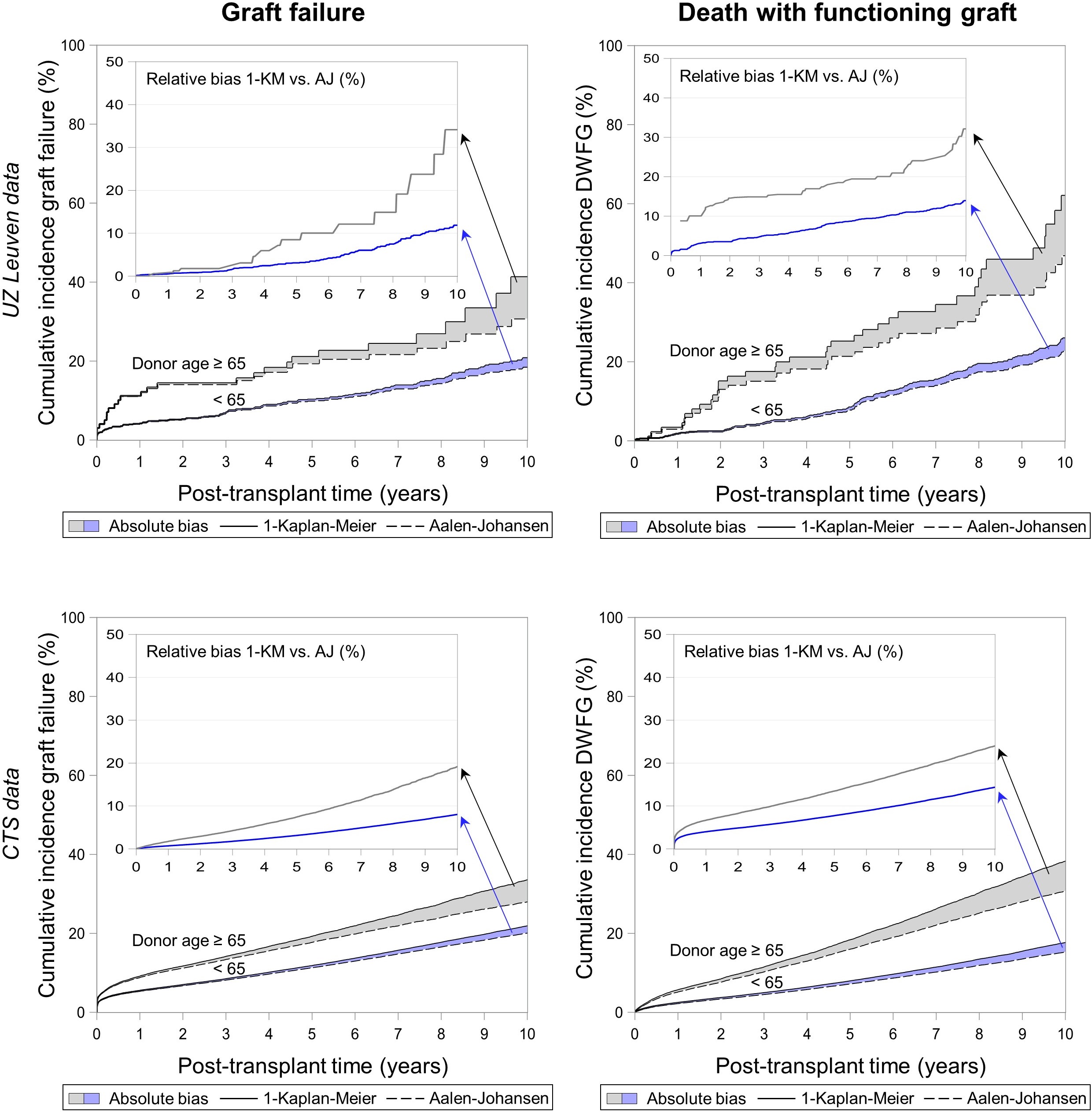Influence of the Competing Risk of Recipient Death on the Risk Estimation of Kidney Transplant Failure
M. Coemans1, G. Verbeke2, B. Döhler3, C. Süsal3, M. Naesens1
1Microbiology, Immunology and Transplantation, KU Leuven, Leuven, Belgium, 2Leuven Biostatistics and Statistical Bioinformatics Centre, Leuven, Belgium, 3Heidelberg University Hospital, Heidelberg, Germany
Meeting: 2022 American Transplant Congress
Abstract number: 1792
Keywords: Graft failure, Methodology, Multivariate analysis, Survival
Topic: Clinical Science » Organ Inclusive » 72 - Machine Learning, Artificial Intelligence and Social Media in Transplantation
Session Information
Session Name: Machine Learning, Artificial Intelligence and Social Media in Transplantation
Session Type: Poster Abstract
Date: Tuesday, June 7, 2022
Session Time: 7:00pm-8:00pm
 Presentation Time: 7:00pm-8:00pm
Presentation Time: 7:00pm-8:00pm
Location: Hynes Halls C & D
*Purpose: Prognostic models for kidney transplant failure are often based on methods that censor for recipient death. Death is a competing event biasing the risk estimation of graft failure. Appropriate statistical methods exist for this, but are insufficiently applied in kidney transplantation research. In this project, we estimate the risk of graft failure with competing risk methods and evaluate the short- and long-term bias caused by death censoring.
*Methods: We performed a population-based, retrospective study of a single-center (2004-2013, n=958) and European-wide (2000-2019, n=167 190) cohort (Collaborative Transplant Study (CTS)), including all single, adult kidney transplantations. We evaluated the short- and long-term (10 years) bias when using the death-censored Kaplan-Meier method versus the competing risk Aalen-Johansen estimator and when using the death-censored Cox model versus the competing risk Fine and Gray model. The analyses were performed overall and in high- and low-risk groups for death, which were based on donor age and the presence or absence of pre-transplant donor-specific human leukocyte antibodies.
*Results: With median follow-ups of 7.8 and 5.0 years, there were 18% graft failures and 25.1% deaths in the single center versus 16.8% and 13.6% in the CTS respectively. The (death-censored) Kaplan-Meier method overestimated the true cumulative incidence of graft failure, with relative biases ranging from 3.7% to 3.9% at 5 years and from 9.7% to 13.4% at 10 years. In transplantations with donors ≥65 years (higher risk for death and graft failure), the absolute overestimation reached 10.5 percentage points at 10 years (34.1%), compared to 2.2 percentage points (11.9%) in the <65 years group (Figure 1). The death-censored Cox model overestimated the cumulative incidence, with absolute biases ranging from 0.5 percentage points at 5 years to 3.6 at 10 years, and relative biases from 1.9% to 9.8%, for donors of age 70 and recipients of age 54.
*Conclusions: In kidney transplantation, death censoring leads to overestimation of the risk of graft failure. The bias depends on time after transplantation and the background risk for the competing event. Competing risk models are widely available and statistically more appropriate than death-censored survival analyses for estimating the risk of graft failure.
To cite this abstract in AMA style:
Coemans M, Verbeke G, Döhler B, Süsal C, Naesens M. Influence of the Competing Risk of Recipient Death on the Risk Estimation of Kidney Transplant Failure [abstract]. Am J Transplant. 2022; 22 (suppl 3). https://atcmeetingabstracts.com/abstract/influence-of-the-competing-risk-of-recipient-death-on-the-risk-estimation-of-kidney-transplant-failure/. Accessed February 19, 2026.« Back to 2022 American Transplant Congress

